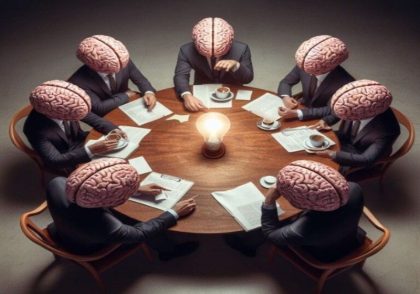What is Confirmation Bias?

Confirmation Bias: Definition, Evidence, and Implications
What is Confirmation Bias?
Confirmation bias refers to the human tendency to seek out, interpret, and remember information in a way that confirms one’s preexisting beliefs, expectations, or hypotheses. This cognitive bias operates largely unconsciously and leads individuals to dismiss or undervalue evidence that contradicts their views. As a result, people often reinforce their existing opinions rather than challenge or reconsider them.
From a cognitive psychology perspective, confirmation bias is considered an adaptive mental shortcut that helps reduce the overwhelming amount of information people encounter daily. Instead of processing all incoming data objectively, individuals selectively attend to details that align with their worldview, making decision-making faster and cognitively less demanding.
Origins and Underlying Causes
One key explanation for confirmation bias lies in cognitive efficiency. Human beings face a constant flood of information, but their cognitive resources are limited. Processing every piece of data in a fully rational and unbiased manner is practically impossible. Thus, the mind defaults to filtering information through existing mental frameworks or beliefs.
Additionally, confirmation bias serves an important psychological function in preserving self-esteem and a coherent self-concept. Accepting that deeply held beliefs or values might be incorrect can be threatening and distressing. Consequently, individuals are motivated—often unconsciously—to favor information that upholds their self-image and intellectual identity.
Empirical Evidence Supporting Confirmation Bias
Extensive research in psychology has documented confirmation bias across various domains:
-
Decision-Making: Once individuals make a choice, they tend to seek out information that supports their decision while ignoring contradictory evidence, thereby reducing cognitive dissonance and emotional discomfort.
-
Social Perception: When evaluating others, people look for behaviors and traits that confirm their pre-existing expectations. For example, if someone believes a person is friendly, they are more likely to notice friendly actions and overlook unfriendly behaviors.
-
Medical Diagnosis: Healthcare professionals are not immune to confirmation bias. An initial diagnosis may bias doctors towards interpreting subsequent symptoms in a way that supports their preliminary conclusions, potentially overlooking alternative diagnoses. Patients also tend to accept diagnoses that align with their hopes or expectations.
-
Legal Judgments: Judges and jurors might form early opinions about a defendant’s guilt or innocence, which then bias their interpretation of evidence presented later, increasing the risk of unfair verdicts.
Consequences and Risks
The effects of confirmation bias can be profound and wide-ranging:
-
Perpetuation of False Beliefs: By selectively attending to confirming evidence, individuals may maintain inaccurate or distorted beliefs despite contradictory facts.
-
Poor Decision Outcomes: Relying on biased information can lead to flawed decisions, sometimes with significant negative consequences.
-
Interpersonal Conflicts: Biased perceptions can contribute to misunderstandings and tension in personal and group relationships.
-
Impacts on Justice and Health: In medical and legal contexts, confirmation bias can compromise the fairness of judgments and the quality of care.
Strategies to Mitigate Confirmation Bias
Despite its pervasiveness, there are effective ways to reduce the influence of confirmation bias:
-
Increasing Awareness: Educating individuals about the existence and effects of confirmation bias is a critical first step.
-
Actively Seeking Contradictory Evidence: Purposeful efforts to consider opposing viewpoints and disconfirming data help balance information processing.
-
Engaging in Critical Thinking: Evaluating evidence through multiple perspectives promotes more accurate and objective judgments.
-
Emotional Detachment: Reducing emotional involvement in contentious issues facilitates more rational analysis and decreases biased interpretation.
Conclusion
Confirmation bias is a fundamental cognitive distortion that affects how people acquire knowledge, make decisions, and interact socially. Understanding this bias, recognizing its psychological underpinnings, and applying deliberate strategies to counteract it can significantly improve critical thinking and decision-making quality. By addressing confirmation bias, individuals and professionals across fields—from medicine and law to everyday relationships—can foster more accurate beliefs, fairer judgments, and healthier interpersonal dynamics.







Leave a Reply